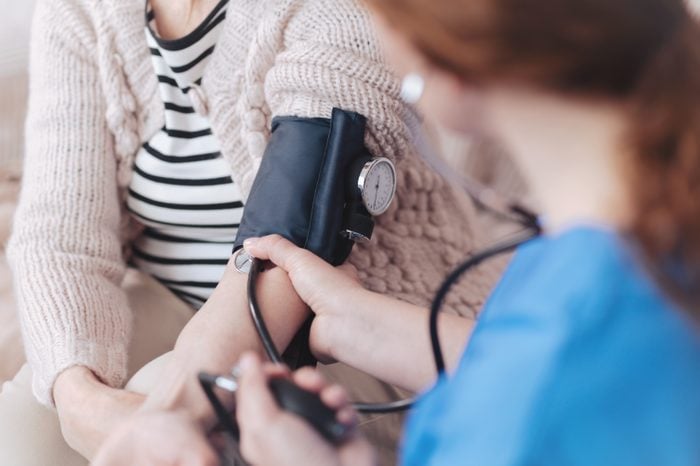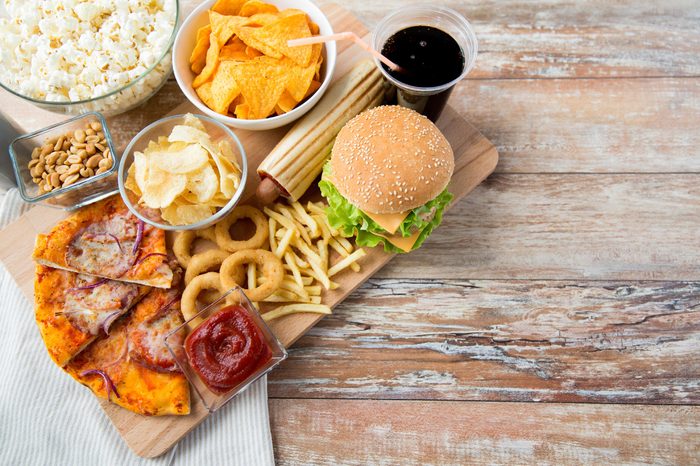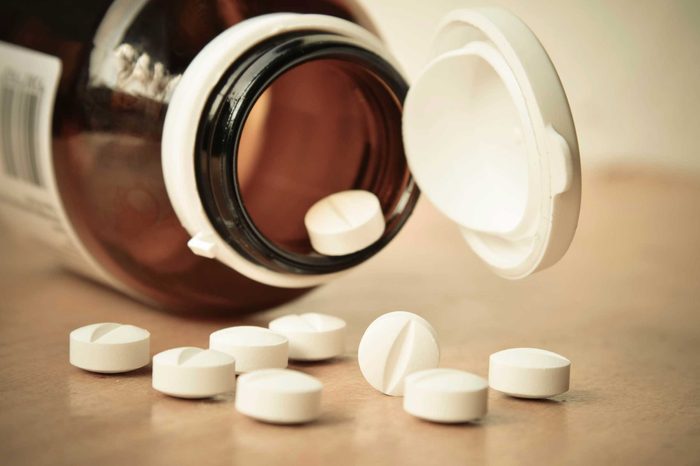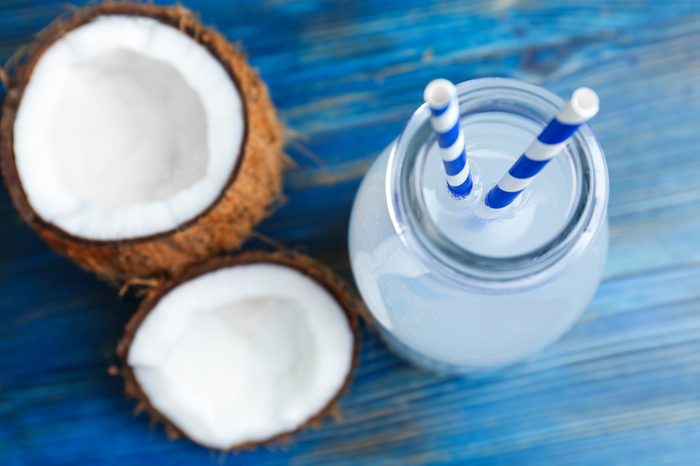
The scoop on potassium
Like calcium or magnesium, potassium is an electrolyte that helps your body function—it’s also one of the nutrients that nutritionists can’t get enough of and can be found in citrus, bananas and tomatoes, among other foods. Potassium lowers your blood pressure and helps with digestive and muscular function, so keeping these levels steady and knowing when to get tested for a potassium deficiency can help keep you healthy.

You have a poor diet
It’s easy to reach for cookies, chips, and comfort snacks, but if your day-to-day diet isn’t balanced, you could end up with a potassium deficiency. “If this is someone not good at eating fruits and vegetables, and eating a lot of processed foods and junk foods, they’re at risk for lower potassium levels,” says Manuel Villacorta, RD, the founder of Whole Body Reboot in San Francisco, CA. Add 10 high-potassium foods to your diet instead.

Your muscles feel weak
When you’re low on potassium, you’ll feel it in your muscles because potassium is an electrolyte needed for muscle construction and contraction. “Potassium is an electrolyte needed by your muscles,” says Villacorta. “One of the first symptoms people feel is muscle contraction.”

Your muscles are cramping
Because your muscles need healthy potassium levels, if you dip below a certain point, you could get muscle cramps. “People experience muscle cramps when their potassium is too low,” says Villacorta. You could also try these 10 home remedies for sore muscles.

You’re taking diuretics or fluid pills
According to nutritionist Alyse Levine, RD, founder of Nutritionbite in Santa Monica, CA, the most common reason for potassium deficiency is prescription water or fluid pills such as diuretics. The pills cause the loss of potassium in urine. “Only rarely is low potassium caused by not getting enough potassium in your diet,” says Levine. If you’re on diuretics, your potassium should be monitored. If it gets too low, your doctor may prescribe supplements.

Your heart rate is abnormal
Severely low levels of potassium can mess with your heart rate, and even cause arrhythmias if potassium levels dip critically low. Monica Auslander, RD, founder of Essence Nutrition in Miami, FL, says that potassium electrolyte imbalances can even be fatal, which is why they’re so important.
Did you know that eating a banana every day has been found to reduce the risk of heart attack or stroke?

You’re dehydrated
Auslander says that electrolyte imbalances like lowered potassium usually only occur with dehydration, eating disorders, or athletes, but they can be helped. “Coconut water is an excellent re-hydrating method for serious sports,” she says, “but honestly, water has been proven to be almost as good.” Pay attention to these 7 dehydration symptoms.
